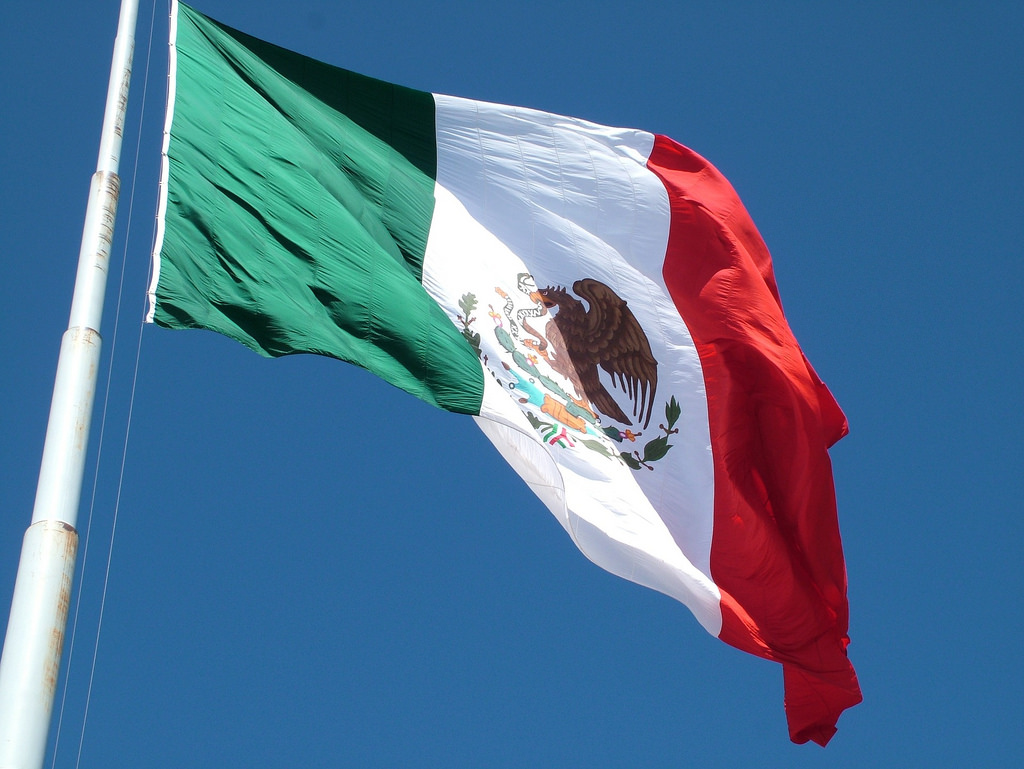Mexico’s Supreme Court declared marijuana prohibition unconstitutional on October 31, in effect requiring Mexican lawmakers to legalize it.
Rulings in two cases found that “persons of legal age [have the right to] decide–without any interference–what kind of recreational activities they wish to carry out and protect all the actions necessary to materialize that choice,” according to a translation of the press release. In 2015 and 2017, the court ruled similarly on three other cases; Mexican law states that a total of five Supreme Court rulings with comparable conclusions constitute a binding precedent.
The ruling states that the right to use marijuana “is not absolute, and the consumption of certain substances may be regulated, but the effects provoked by marijuana do not justify an absolute prohibition of its consumption.”
This does not yet equate to full legalization. The next step is for Congress to actually reform the laws that the Supreme Court found unconstitutional. Once codified into law, personal use and cultivation, though not necessarily commercial trade, would be permitted.
In the meantime, the country will enter a gray zone. Police are still authorized to arrest people for using or growing. But if cases proceed to court, judges will be obliged to abide by the Supreme Court ruling.
The imminent end to Mexico’s marijuana prohibition comes on the coattails of Canada’s legalization taking effect on October 16. However, Mexico’s version of legalization may be less like Canada’s commercially oriented model, and more comparable to the “give-and-grow schemes in Washington, DC and Vermont,”—a comparison suggested by Steve Rolles, senior policy analyst for the Transform Drug Policy Foundation.
The Supreme Court decision will have major human-rights ramifications. As Froylán Enciso, a drug policy researcher at CIDE, Mexico’s social sciences institute told United Press International, most people in prison in Mexico for drug-law violations are incarcerated for marijuana possession. “The Mexican government has not put violent criminals in prison but people who smoke small quantities on street corners or outside,” he said. “So these decisions will benefit many small consumers.”
There’s no doubt that it will also have a big impact on the US. As this map from the Washington Post shows, the US is now surrounded by marijuana legalization, as well as having nine states that have legalized:

Mexico’s drug-policy future looks promising, given the positions of leftist President-elect Andrés Manuel López Obrador. In 2017, Obrador suggested that he may offer amnesty to those impacted by the drug war, on condition that they participate in rehabilitative programs. More recently, members of his incoming administration met with Canadian government officials, speaking, among other things, about Mexico’s possible “inclusive governance and regulation of cannabis use.” Obrador takes office on December 1.
But while the Supreme Court’s ruling seems forward-looking, it’s important to remember that prohibition in Mexico, as elsewhere, is a relatively recent phenomenon.
Back in January 5 1940, Mexico’s then-president, Lázaro Cárdenas, signed the Federal Regulation of Drug Addiction into law, authorizing doctors to prescribe small, controlled doses of cocaine and morphine to people struggling with addiction for use under medical supervision. The legislation also said that a toxicómano—a person who uses drugs without any explicit “therapeutic” purpose—”should be conceived of more as a patient who must be cared for and cured than as a true criminal who should suffer a penalty.”
Though the 1940 reform was deemed a success, it was overturned within six months. Following international norms spearheaded by the US, Mexico’s drug laws became progressively more punitive. Now there’s a chance to return to that far more pragmatic and humane pre-prohibition spirit.





Show Comments